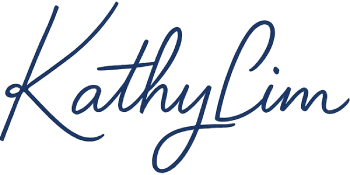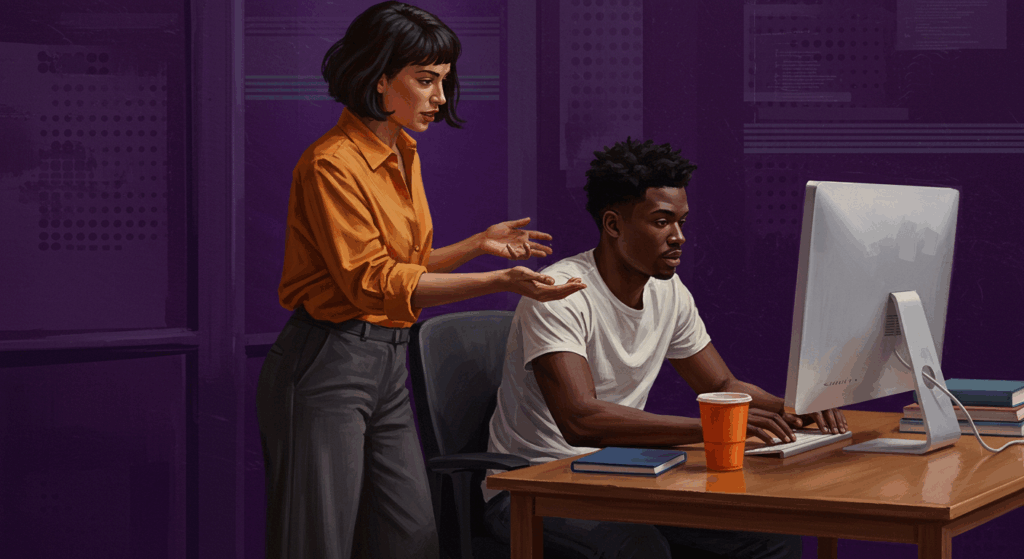Okay, let’s be real here – we’ve all been there. That moment when you get the call for an interview and suddenly your heart starts racing like you just ran a marathon. Your palms get sweaty, your mind goes blank, and you start questioning everything from your qualifications to whether you even want this job anymore. Trust me, you’re not alone in this.
I’ve been through this cycle more times than I care to admit, and honestly? Those butterflies in your stomach are completely normal. In fact, they’re probably a good sign – it means you actually care about landing this opportunity. But here’s the thing: you don’t have to let those nerves control your performance.
After years of dealing with interview anxiety (both personally and watching friends go through it), I’ve picked up some pretty effective strategies that actually work. So grab a cup of coffee, take a deep breath, and let’s dive into some practical ways to calm those pre-interview jitters.
Understanding Why We Get Interview Nerves
Before we jump into the solutions, it helps to understand what’s happening in your brain when those nerves kick in. Your body is basically going into fight-or-flight mode because it perceives the interview as a threat. Pretty dramatic, right? But that’s just how our brains are wired.
The anxiety often comes from worrying about situations we fear or feel pressured about, and job interviews definitely check both those boxes. You’re walking into an unfamiliar situation where you’re being evaluated, and that naturally triggers our stress response.
The good news is that once you understand this is just your brain trying to “protect” you, you can start working with it instead of against it. Some people even find that reframing nervous energy as excited energy can help use that adrenaline to push yourself to be your best. It’s like turning your anxiety into your secret weapon.
The Night Before: Setting Yourself Up for Success
Do Your Homework (But Don’t Go Overboard)
Look, I know everyone says to research the company, and honestly, they’re right. But here’s what they don’t tell you – don’t fall down the rabbit hole. Research the company, practice responses to common questions, and have your resume ready, but don’t spend all night memorizing their entire corporate history.
I made that mistake once and showed up looking like a zombie because I’d stayed up until 2 AM reading every press release from the past five years. Not cute. Do enough research to show you’re interested and informed, then stop. You need your sleep more than you need to know their Q3 earnings from 2019.
Practice, But Keep It Real
Mock interviews are great – have a friend ask you common questions if you can. But here’s the thing: don’t try to rehearse every possible scenario. You’ll drive yourself crazy, and you’ll sound robotic during the actual interview.
Instead, focus on a few key stories about your experience that showcase different skills. Practice telling these naturally, like you’re explaining them to a friend over dinner. That way, no matter what they ask, you’ll have relevant examples ready to go.
The Power of Breathing (I Know, I Know…)
Why Breathing Actually Works
I used to roll my eyes when people told me to “just breathe” during stressful situations. Like, thanks Captain Obvious, I’m already breathing – that’s why I’m alive! But here’s what I learned: it’s not just about breathing, it’s about breathing correctly.
When you exhale, you’re signaling to your body that it’s time to calm down, which is pretty cool when you think about it. Your breath literally becomes a remote control for your nervous system.
Techniques That Actually Help
The 4-7-8 method has been a game-changer for me. Inhale quietly through your nose for 4 seconds, hold for 7 seconds, then exhale through your mouth for 8 seconds. The long exhale is what triggers that relaxation response.
I usually do this in my car before walking into the building. Sometimes I do it in the bathroom right before the interview. Nobody judges you for taking a bathroom break, and it’s a great place to do a quick reset.
Another one that works well is box breathing – inhaling for four counts and exhaling for four counts, keeping them equal and smooth. It’s simple enough that you can do it while walking or even during the interview if you need to center yourself.
Physical Prep: Your Body Language Affects Your Mind
Arrive Early (But Not Too Early)
Arriving at least 20 minutes early ensures you’re in the right place and gives you time to look around and take in your surroundings. But here’s the catch – don’t go in 20 minutes early. That’s just awkward for everyone.
Get there early, but hang out in your car or find a nearby coffee shop. Use that extra time to do your breathing exercises, review your notes one last time, or just sit and collect your thoughts. Then walk in about 10-15 minutes before your scheduled time. Perfect timing.
Power Poses and Body Language
This might sound silly, but it works. Before you go in, find a private space (your car, a bathroom, whatever) and stand like Wonder Woman for two minutes. Hands on hips, chest out, chin up. I know it feels ridiculous, but there’s actual science behind this.
During the interview, maintain open body language and eye contact, and try to avoid nervous fidgeting. Easier said than done, I know. If you’re a fidgeter like me, give your hands something to do – hold a pen, keep your hands loosely clasped, or rest them on the table.
Mental Game: Reframing Your Thoughts
It’s Not Just About You
Here’s something that really helped me: remember that the interviewers want you to succeed. They’re not sitting there hoping you’ll mess up so they can reject you. They called you in because they think you might be a good fit. They’re rooting for you!
Think about it from their perspective – they have a problem (an open position) and they’re hoping you’re the solution. You’re not there to beg for a job; you’re there to see if you can solve their problem. That shift in mindset changes everything.
Questions Aren’t Attacks
If you don’t understand a question, don’t be afraid to ask for it to be repeated or rephrased. You can even ask if they can come back to it later. This was huge for me to learn. I used to panic if I didn’t immediately understand a question, thinking it made me look stupid.
But asking for clarification actually shows you’re thoughtful and want to give a good answer. It’s way better than rambling through a response that doesn’t actually address what they asked.
Day-of Strategies That Work
Morning Routine
Don’t change your entire routine on interview day. If you’re not normally a morning workout person, don’t suddenly decide to hit the gym at 6 AM. Stick to what makes you feel comfortable and confident.
Do lay out everything the night before – your outfit, your documents, directions, everything. The last thing you need is to be frantically searching for your resume while running late.
Fuel Your Body Right
Eat something, even if you’re nervous. I learned this the hard way after nearly fainting during an interview because I’d skipped breakfast. You don’t need a huge meal, but your brain needs fuel to function properly.
Avoid too much caffeine if you’re already jittery. I know, I know – coffee feels like liquid courage, but if you’re already anxious, extra caffeine might push you over the edge. Maybe stick to half your usual amount?
During the Interview: Staying Centered
The First Few Minutes
Those first few minutes are crucial for setting the tone. Take time to consider your answers and don’t be afraid of brief pauses. A moment of silence while you think is way better than word vomit.
I used to think I had to start talking immediately, but pausing actually makes you seem more thoughtful and composed. Plus, it gives you a second to breathe and organize your thoughts.
When Nerves Strike Mid-Interview
Sometimes, despite all your preparation, anxiety hits you mid-conversation. Maybe they ask something unexpected, or you stumble over your words. It’s okay – happens to the best of us.
Take a slow breath, acknowledge it if you need to (“Let me think about that for a second”), and reset. Most interviewers are understanding about nerves because they’ve been there too.
Long-term Strategies for Interview Confidence
Practice Makes… Better
The truth is, the more interviews you do, the less scary they become. Each one is practice for the next. I know that’s not super helpful when you’re preparing for a specific interview you really want, but it’s worth remembering.
Even if this interview doesn’t work out (and hopefully it will!), you’re building skills and confidence for future opportunities. Every interview is a learning experience, not just a pass/fail test.
Building Your Interview Portfolio
Keep a running document of your accomplishments, projects, and challenges you’ve overcome. Update it regularly, not just when you’re job hunting. This becomes your go-to resource for interview prep and helps you remember all the awesome things you’ve done when impostor syndrome kicks in.
The Reality Check
Look, I’m not going to lie to you and say these techniques will magically eliminate all your nerves. Some anxiety is normal, and honestly, a candidate who appears too laid back could be seen as not really interested in the job. A little nervous energy shows you care.
The goal isn’t to become completely zen (though if you can, more power to you). The goal is to manage your nerves enough that they don’t interfere with showing your best self. You want to be calm enough to think clearly and confident enough to communicate effectively.
Final Thoughts
Remember, you got this interview for a reason. Someone looked at your resume, your experience, your qualifications, and thought, “Yes, I want to talk to this person.” That’s not nothing – that’s actually pretty amazing when you think about it.
The interview is just a conversation about whether you’d be a good fit for each other. Approach it with curiosity about the role and the company, rather than desperation to impress. Be yourself – the right opportunity will appreciate the real you.
And if it doesn’t work out? That’s okay too. It doesn’t mean you’re not qualified or capable. Sometimes it’s just not the right fit, and that’s actually a good thing to discover before you start working there.
Take a deep breath, trust in your preparation, and go show them what you’re made of. You’ve got this, and your future self will thank you for pushing through the nerves and putting yourself out there.
Good luck – not that you’ll need it, because you’re going to do great.









